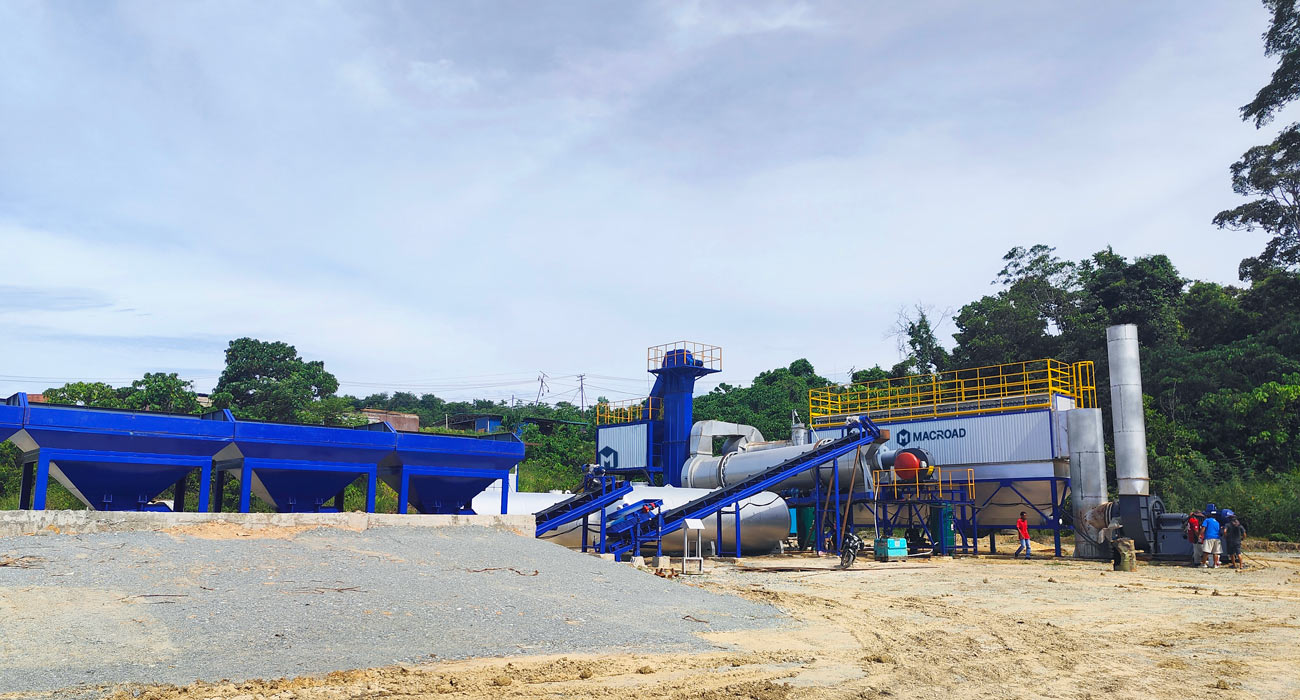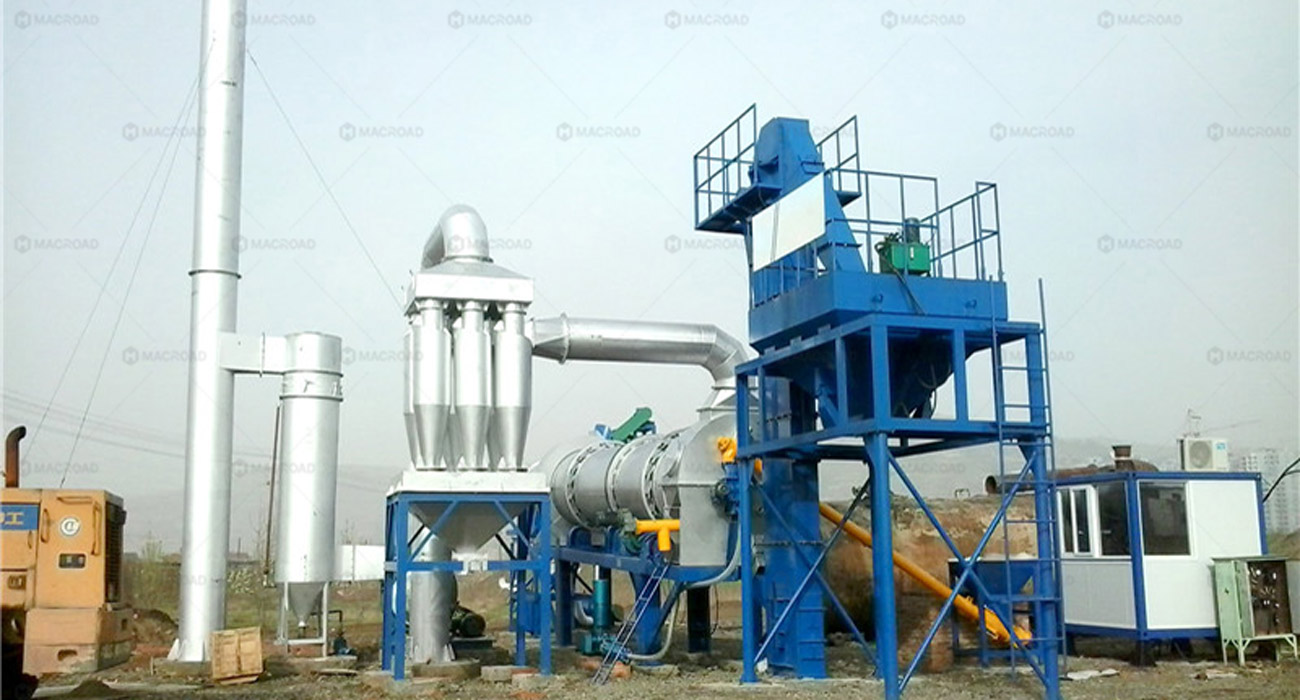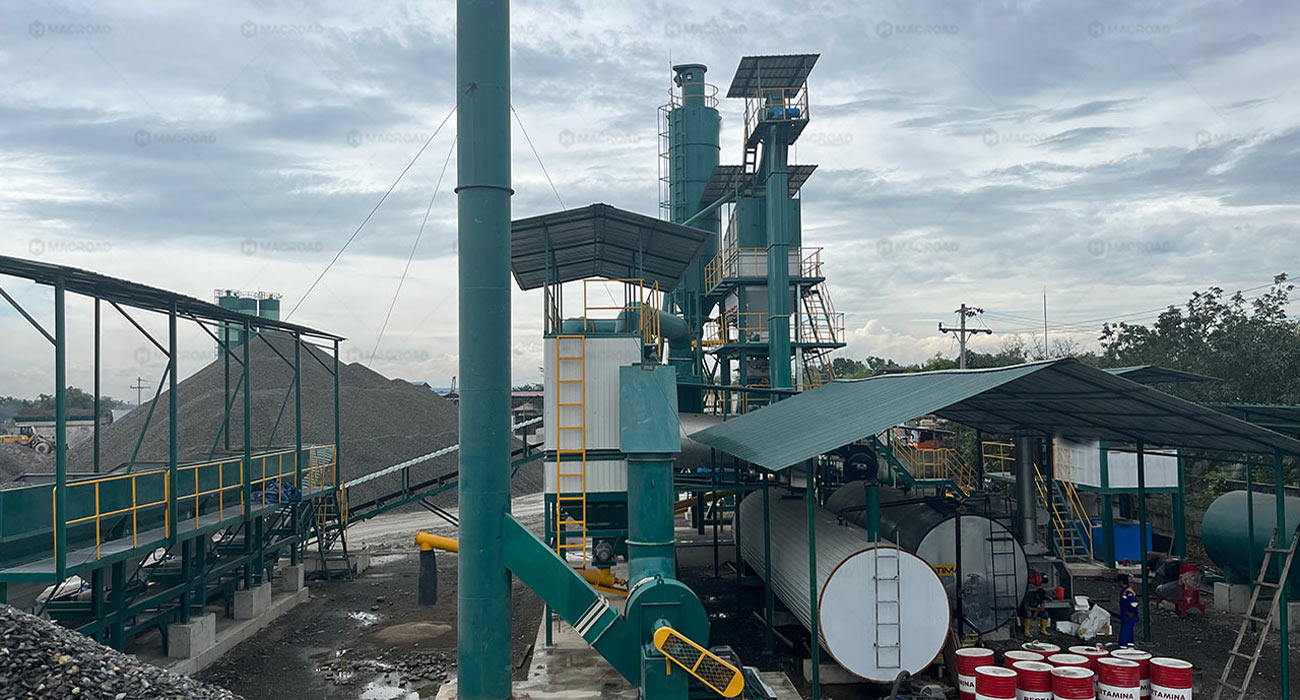Utilizing waste heat recovery systems in asphalt mixing plants offers a promising opportunity for enhancing energy efficiency and reducing operational costs. One innovative application of this technology is repurposing waste heat for office heating. This article explores the feasibility of implementing waste heat recovery systems specifically for office heating within asphalt mixing plants, highlighting the benefits, challenges, and practical considerations involved.

Understanding Waste Heat Recovery
Waste heat recovery involves capturing excess heat generated during the asphalt production process and reusing it for other purposes, such as heating office spaces. Asphalt mixing plants, whether fixed or mobile, generate significant amounts of heat during operations, particularly from equipment like asphalt debarrel equipment. By integrating a waste heat recovery system, plants can convert this otherwise lost energy into a valuable resource for maintaining comfortable working environments.
The feasibility of this approach largely depends on the efficiency of the heat recovery system and the specific heating requirements of the office space. Conducting a thorough assessment of both the heat output and the heating needs is crucial for determining the potential benefits. This assessment will help operators understand how much of the waste heat can be effectively utilized for office heating, ultimately leading to cost savings and improved energy efficiency.

Economic and Environmental Benefits
Implementing waste heat recovery for office heating can lead to significant economic benefits. By reducing reliance on conventional heating systems, asphalt mixing plants can lower their energy costs. This is particularly advantageous during colder months when heating demands peak. Moreover, utilizing waste heat contributes to a reduction in greenhouse gas emissions, aligning with the industry’s sustainability goals.
In addition to economic savings, integrating waste heat recovery systems enhances the overall service efficiency in asphalt mixing plants. By optimizing energy use, plants can improve their operational performance while minimizing environmental impacts. This dual benefit not only supports compliance with regulatory requirements but also enhances the facility’s reputation within the community.

Challenges and Considerations
While the benefits of waste heat recovery are substantial, there are challenges to consider. The initial investment for installing heat recovery systems can be significant, particularly for larger facilities or those with complex configurations. Operators must evaluate the long-term savings against upfront costs to determine the financial viability of such projects.
Furthermore, the effectiveness of waste heat recovery systems can vary depending on the type of asphalt mixing plant in use. For example, cold mix asphalt plants may produce different heat profiles compared to traditional hot mix plants. Assessing the specific operational characteristics of the plant is essential to ensure that the waste heat recovery system is appropriately designed and implemented.
In conclusion, the feasibility of using waste heat recovery from asphalt mixing plants for office heating presents a compelling opportunity for enhancing energy efficiency and reducing costs. By capturing and repurposing excess heat,asphalt plants can improve their operational performance while contributing to environmental sustainability. However, careful consideration of the economic implications and specific operational challenges is essential for successful implementation. Macroad is using these innovative technologies to make asphalt mixing plants contribute to energy efficiency and sustainability in the construction industry.